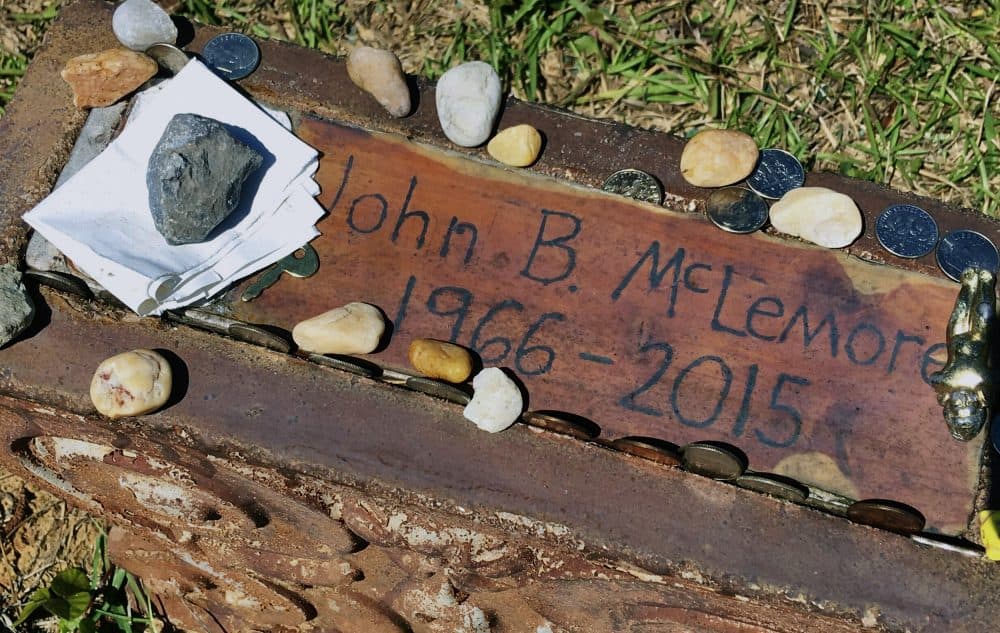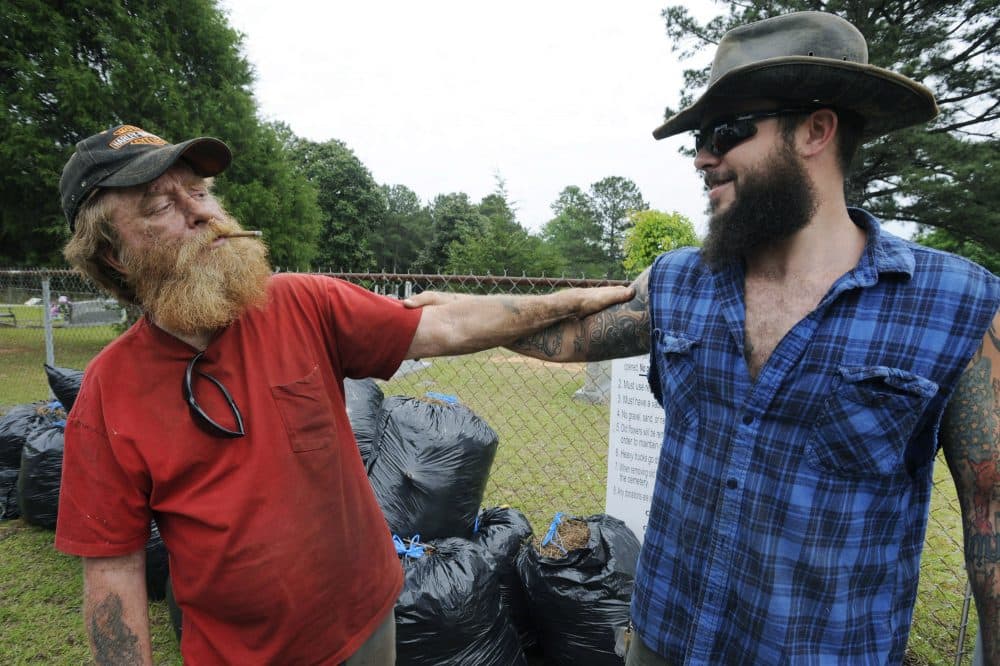Advertisement
Commentary
On 'S-Town' And Suicide: Could Anyone Have Saved John B. McLemore?

Editor's note: This post contains spoilers for the podcast "S-Town."
I listened to "S-Town," a serial podcast from the producers of "This American Life," with a growing sense of alarm, hoping that the question on my mind would be addressed, but gradually realizing that it would not: Why did an entire community — including the investigative reporter at the heart of the story — apparently not attempt to help a man with symptoms of major mental illness who repeatedly talked about suicide?
Although "S-Town" begins as a murder mystery, it is essentially a seven-part portrait of John B. McLemore, a brilliant man whose personality and community were a mismatch, who was well-loved by friends and family but did not know it and who appeared to be suffering from an undiagnosed and untreated mental illness — possibly bipolar disorder.
"S-Town" is a unique piece of journalism which received mixed reviews, but was praised by many. Some reviewers, such as The Boston Globe's Ty Burr, raised ethical questions related to exploitation, privacy and permission; however, reviewers generally did not discuss themes of mental illness and suicide prevention.
In "S-Town," reporter and producer Brian Reed details his unique friendship with John, which began when John reached out to Reed with concerns about corruption in his rural Alabama town and developed over the course of several years. Reed describes how John repeatedly talked about suicide to many friends and acquaintances, including to Reed. He also describes John's long history of erratic behaviors, which Reed attributes to factors including John's quirky personality, potential exposure to mercury and social stigma around his sexual orientation.

But Reed is relatively dismissive of the potential impact of mental illness on John's ability to function. Throughout the podcast, Reed talks at length about John's genius, the dynamics of life in rural Alabama, John's mysterious finances, conflicts between John's family and friends after his death, the philosophical meaning of time, John's relationship to pain, his sexual orientation and more, but he does not talk about mental health — the elephant in the room — in any meaningful way.
There are certainly situational factors which may have contributed to John's suicidal thoughts. Research has shown that LGBTQ individuals tend to be at higher risk for suicide than the general population, in part due to risk factors such as cultural and social prejudice. In fact, Reed underscores that the county in which John lived was one of the few in the United States which initially refused to comply with the Supreme Court's 2015 decision legalizing same sex marriage. John also lived in a rural area where access to mental health services may have been limited. However, he lived relatively close to a major city, where it is likely that treatment would have been available had he sought it.
According to Reed, at least one of John's friends encouraged him to seek professional psychiatric help, but he refused. Reed describes how John had conflicts in many of his closest relationships, which likely increased his sense of alienation and isolation. Then there was a female friend of John's who was very concerned about John's depression, but felt that John's provocative and thoughtless behaviors were so great that she was unable to sustain the friendship.
As there are probably many reasons why John apparently didn't seek help, it could be instructive, and potentially life-saving for others, to try to better understand these reasons. Given the opportunity to bring attention to a major public health problem, it is hard to understand why Reed elected not to do so.
Reed talks at length about John's genius ... but he does not talk about mental health -- the elephant in the room -- in any meaningful way.
Although it is never spoken aloud, one of the implicit messages in "S-Town" is that John's suicide was inevitable. It is certainly possible that John might still have died had he received treatment, but it is also possible that mental health intervention, or even knowledge of a suicide prevention hotline, could have saved his life. This was a man apparently desperate for human connection, but who had trouble maintaining relationships; the availability of a kind stranger on the phone, even hundreds of miles away, might have made a difference on that terrible night.
"S-Town" listeners need to know that suicide is preventable, and that mental illness can be treated. Of course, not every suicide will be stopped, and not everyone with mental illness will receive effective treatment, or will utilize available treatment. But those in positions of leadership, such as reporters, should use their power to provide accurate messages and relevant information to the public. Talking openly about mental health — and providing a suicide prevention hotline number at the end of the podcast — would have been a good start.
Resources: You can reach the National Suicide Prevention Lifeline at 1-800-273-TALK (8255) and the Samaritans Statewide Hotline at 1-877-870-HOPE (4673).
